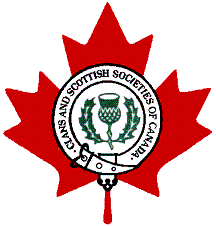

National Tartan Day Approved!
OTTAWA, ONTARIO--(Marketwire - Oct. 21, 2010) - The Honourable James Moore, Minister of Canadian Heritage and Official Languages, announced today that the Government of Canada will now officially recognize April 6 as Tartan Day.
"A tartan represents a clan, a family, and a community, and is an enduring symbol of Scotland that is cherished by Canadians of Scottish ancestry," said Minister Moore. "Many Canadian provinces and other countries already celebrate Tartan Day. As well, through Tartan Day, Canadians will have an opportunity to learn more about the various cultures that comprise Canadian society."
Tartan Day originated in the late 1980s in Nova Scotia, where it was declared an official day by the provincial government. It then spread across the country, with many provinces joining in. This marks the first time the Day has been recognized by the federal government.
"By officially recognizing this Day, we encourage Canadians all across the country to celebrate the contributions that over four million Canadians of Scottish heritage continue to make to the foundation of our country," said Senator John Wallace, who recently introduced a bill in the Senate in support of nationally declaring Tartan Day.
In Canada, Tartan Day is celebrated on April 6, the anniversary of the Declaration of Arbroath, the Scottish declaration of independence. Tartan Day celebrations typically include parades of pipe bands, Highland dancing and sports, and other Scottish-themed events.
This news release is available on the Internet at www.canadianheritage.gc.ca under Newsroom.
The Following article is from Grip Fast Volume 4, Issue 2, March 2011.
The Newsletter of Clan Leslie
April 6th is Tartan Day in Canada and the United States. This date was chosen as it is the date that the
Declaration of Arborath was signed. This Declaration was Scotland's declaration of independence from
England. John Prebble, in his book The Lion of the North, stated that
"The Declaration of Arborath was and
has been unequalled in its eloquent plea for the liberty of man. From the darkness of medieval minds it shone
a torch upon future struggles which its signatories could not have seen or understood." Prebble noted that
there are two points that make this declaration "the most important document in Scottish
history":
"Firstly, it set the will and the wishes of the people above the King." In other words, there was no
"divine right of
kings." That kings served the people, and that kings could be made by selection and not necessarily by birth.
"Secondly, the manifesto affirmed the nation's independence in a way no battle could, and justified it with a
truth that is beyond nation and race. Man has a right to freedom and a duty to defend it with his life."
I will quote from page 27 of Grip Fast: The Leslies in History by Alexander Leslie Klieforth who wrote most
eloquently:
"In 1320 eight earls and 31 of the great barons and major clergy of Scotland, among them [Baron] Andrew
Leslie, sent a letter to Pope John XXII, known as the Declaration of Arborath. It is a revolutionary assertion by
a nation of people of their desire for freedom and the right to choose their own government and is a statement
of the leadership of Scotland about their country and its aspirations, and as a political document it ranks in
purpose and power of language with the American Declaration of Independence. In ringing Latin prose it set
forth certain claims and affirmations. It asks the Pope to urge the King of England to desist from his designs on
their nation, to 'leave us Scots in peace, who live in this poor little Scotland . .
. and covet nothing but our
own.' "
It states the will of the people for independence:
'As long as but a hundred of us remain alive never will we be under any condition be brought under English
rule.
It is in truth, not for glory, nor riches, nor honour that we are fighting, but for freedom -
for that alone which no honest man give up but with life itself.'
David Leslie White, Chieftain Click
here to email
Copyright © CASSOC